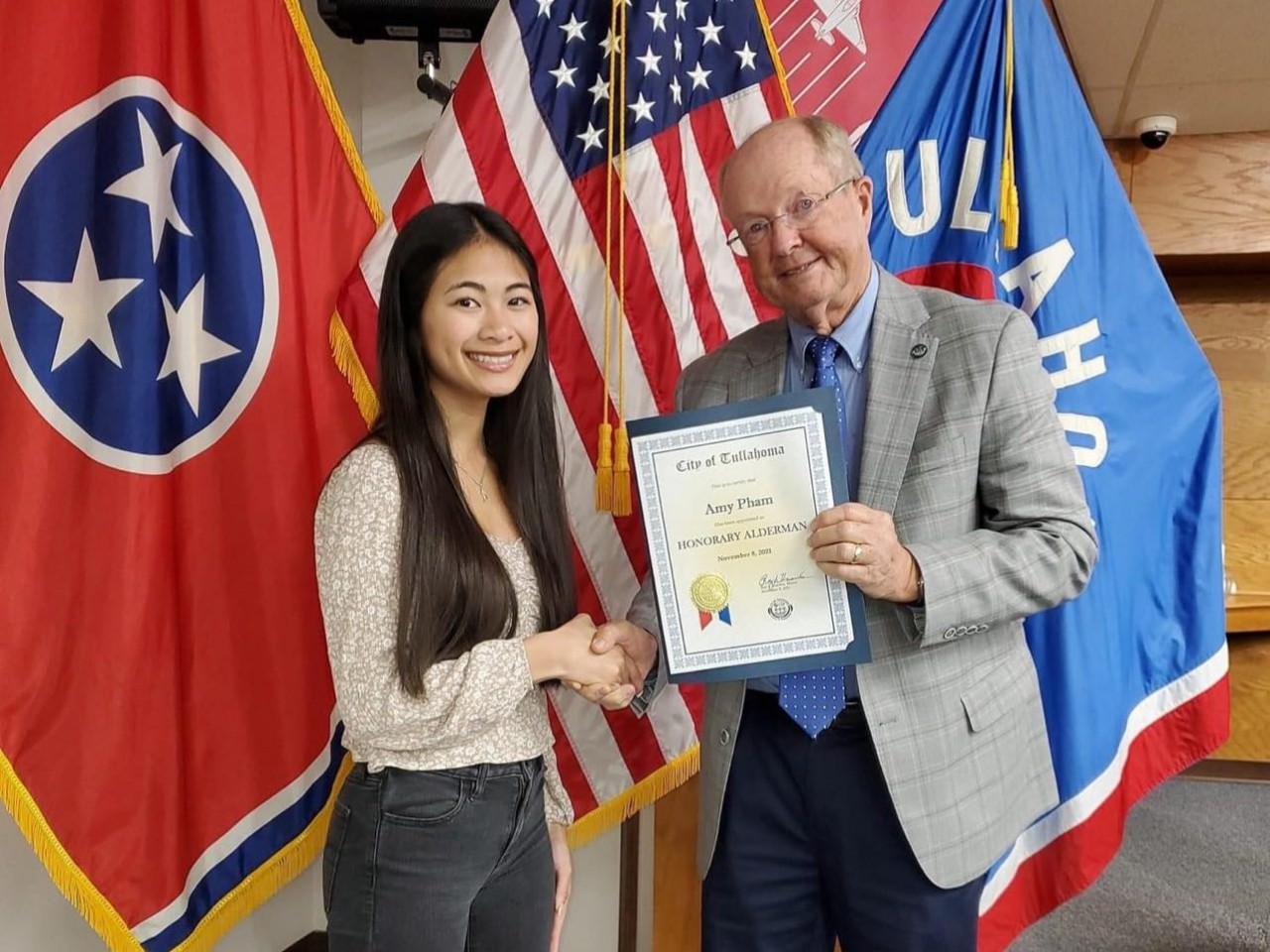A remarkable story is unfolding that defies how we think about top business schools. A Vietnamese woman just won a huge $80,000 MBA scholarship to study in the US. What makes her achievement stand out? Her resume did not list any big-name global companies. This win challenges old ideas about what it takes to get into elite MBA programs.
Most people believe that getting into a competitive US MBA program requires a resume packed with famous companies. There is a strong feeling that if you haven't worked at a Fortune 500 firm, your chances are slim. This often makes many talented individuals feel left out before they even begin.
This inspiring tale is a bright light for anyone who feels their background is not "traditional" enough. It shows that personal drive, real potential, and unique experiences matter most. This woman's success offers hope, proving that your journey can open doors, no matter where it starts.
The MBA Admissions Gauntlet: Beyond Brand Names
The business world often sees working at well-known companies as a sign of success. This thinking also plays a big part in how top MBA programs pick their students. Many believe that big-name firms act like a stamp of approval for your skills and future leadership.
Deconstructing the "Big Name" Resume Advantage
Recruiters and admissions teams sometimes see a famous company on your resume as proof of your abilities. It can seem like these firms have already vetted you, saving the schools some work. This creates an idea that you are already on a clear path to leadership. They assume you have gained excellent experience and built a strong network.
The Rise of Holistic Review: What Admissions Truly Value
But MBA admissions are changing. More and more schools use a "holistic review" process. This means they look at the whole person, not just where they worked. They want to see your leadership potential, how well you work in a team, and your problem-solving skills. Cultural fit and what you can add to the class are also super important.
Identifying and Showcasing Untapped Potential
Our scholarship winner certainly showed her abilities, even without a typical big-company background. She likely focused on what she did achieve, not what she lacked. This approach can make any applicant shine.
Highlighting Unique Professional Journeys
Experience from smaller companies, startups, or even non-profits can tell a powerful story. It often shows resilience, how quickly you adapt, and a real hands-on style. For example, leading a small team to launch a new product at a startup shows more than just being part of a big project at a huge firm. Such roles often require you to wear many hats and solve problems creatively.
Quantifying Impact and Demonstrating Leadership
It is very important to show your achievements with numbers. How many people did you lead? By what percentage did you increase sales or efficiency? Use the STAR method—Situation, Task, Action, Result—to tell your stories. This way, you explain specific times you made a difference, no matter the company size.
The Scholarship Application: A Strategic Masterclass
The scholarship application itself became a huge chance for this candidate to stand out. She likely used every part of it to tell her unique story. This allowed her to show her true potential.
Crafting a Compelling Narrative Beyond the Resume
The parts of your application beyond just your work history are key. These sections let you paint a full picture of who you are. They allow you to explain your choices and show your future goals.
The Power of the Personal Essay
Your personal essay is a powerful tool. It lets you share your unique view of the world and your personal growth. You can explain why you made certain career moves and what you learned. Being honest and telling a good story in your essay can really grab the admissions committee's attention.
Strategic Letter of Recommendation Selection
Picking the right people to write your recommendation letters matters a lot. Choose someone who knows you well and can speak to your specific strengths. Even if they are not from a global company, their honest words about your work ethic and potential are strong. Make sure to tell your recommenders what you want them to highlight about you.
Demonstrating Financial Need and Merit
Scholarships often look at two main things: your financial need and your accomplishments. You need to show both clearly in your application. They want to know you deserve the help and can succeed.
Articulating Financial Need Effectively
When explaining your financial situation, be clear and truthful. Provide all the details they ask for in an easy-to-understand way. Schools want to support students who truly need the funds to pursue their education.
Showcasing Academic and Professional Merit
Even without big-name companies, your academic scores are vital. Strong GPAs and good test scores (like GMAT or GRE) prove your ability to handle tough school work. Show off your professional achievements with clear examples, even if they come from less-known places.
Insights from Admissions Experts and Past Scholars
Admissions teams are always looking for a diverse class. This includes people with different backgrounds. Experts often talk about the hidden gems in "non-traditional" applications.
What Admissions Committees Look For in the "Underdog"
Admissions experts often say they value students who show great initiative and grit. One expert might say, "We look for individuals who have overcome real obstacles and demonstrate a clear ability to make an impact." They want to see how you have handled challenges and grown from them. Your capacity to solve problems and adapt really matters.
The Role of Passion and Purpose in Scholarship Decisions
Having a clear goal and real passion for what you want to do is very convincing. If you can show a strong sense of purpose for a certain field, it shows you are dedicated. This kind of drive can make a huge difference in scholarship choices. Schools want students who will truly make a difference.
Lessons Learned from Successful Non-Traditional Applicants
Many students have achieved MBA success without the typical resume. These individuals often build their own strong networks and seek out mentors. Their stories prove that success is not limited by your past employer.
Building a Strong Network Independently
You can build a great professional network on your own. Attend industry events, join online groups, and talk to people in your field. Informational interviews with professionals can open many doors and show your proactive nature. This proves you are a go-getter.
The Importance of Mentorship and Guidance
Finding mentors is a game-changer. These are people who can offer advice and support as you navigate the tough application process. A good mentor can help you see your strengths and present them clearly. They can guide you through each step, making the journey smoother.
Actionable Tips for Aspiring MBA Students with Unconventional Backgrounds
If you come from an unusual background, you have special strengths. You can highlight these strengths to make your application shine. Here are some simple steps to take.
Maximizing Your Application Strengths
You need to know what makes your experiences special. Then, you must clearly show how these unique points give you skills business schools want. Think about how your journey shaped you.
Identifying and Articulating Your Unique Value Proposition
Sit down and list what makes you different from other applicants. Maybe you started a small business, worked in a niche industry, or led a local project. Explain how these experiences taught you leadership, teamwork, or problem-solving. This is your unique selling point.
Proactive Engagement with Target Schools
Show schools you are serious about their program. Attend online info sessions or visit campuses if you can. Talk to current students and alumni; ask thoughtful questions. This shows genuine interest and helps you learn if a school is a good fit.
Navigating Scholarship Opportunities
There are many scholarships out there, not just the most famous ones. You need to look carefully for the right fit. This can make a big difference for your finances and your future.
Researching and Targeting the Right Scholarships
Do not just look at the biggest scholarships. Explore smaller, university-specific grants. Some scholarships focus on certain groups of people or specific career paths. Finding these niche awards can give you a better chance to win.
Tailoring Applications for Maximum Impact
Every scholarship has its own goals. Make sure your essays and letters of recommendation fit what each scholarship wants. Customizing your application shows you understand their mission and are truly invested.
Conclusion: Redefining Success in Business Education
The success of this Vietnamese woman proves something important. Getting into and funding your MBA dream is now more about your potential and resilience than where you used to work. Your unique experiences and the impact you have made truly matter.
A well-written story and a smart application process can show off your best qualities. This kind of approach helps schools see your true strengths. It also proves the value of having many different viewpoints in business education. So, chase your MBA goals, no matter your background. You might surprise yourself and everyone else.


